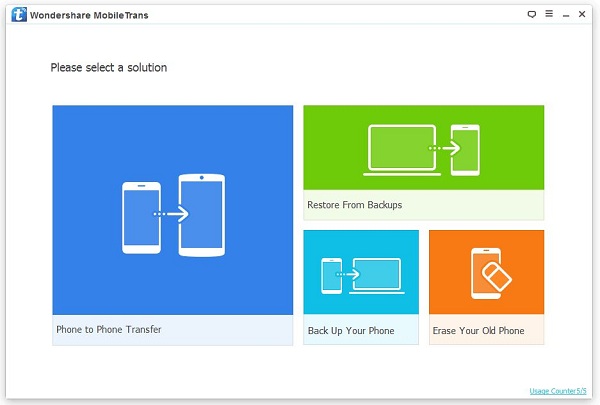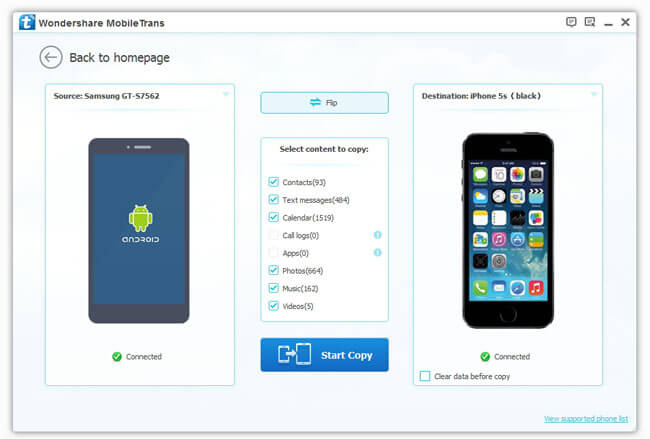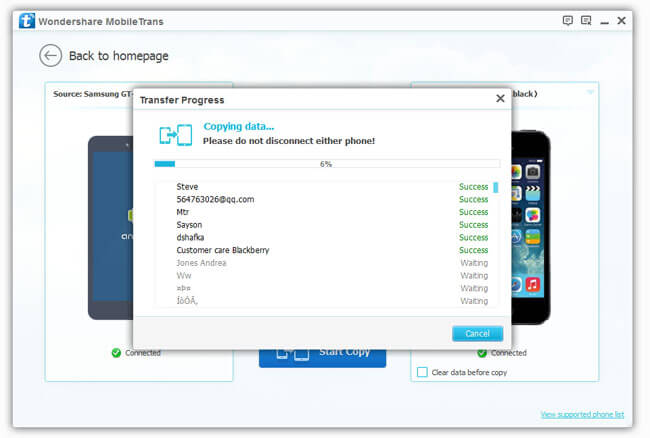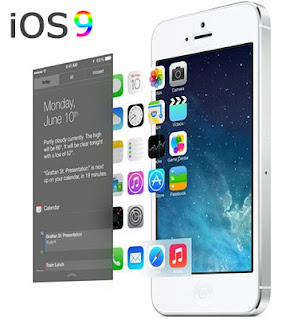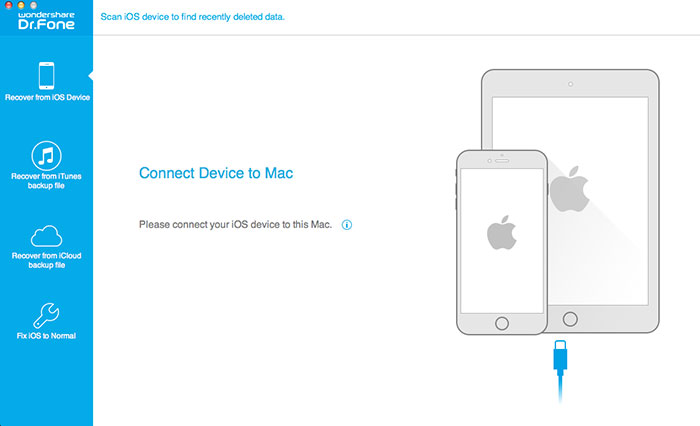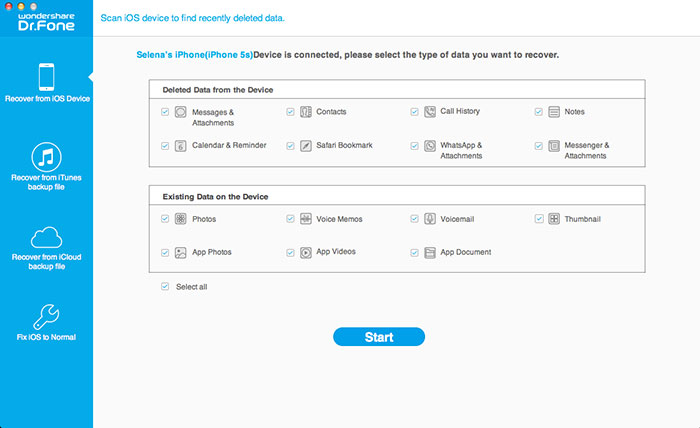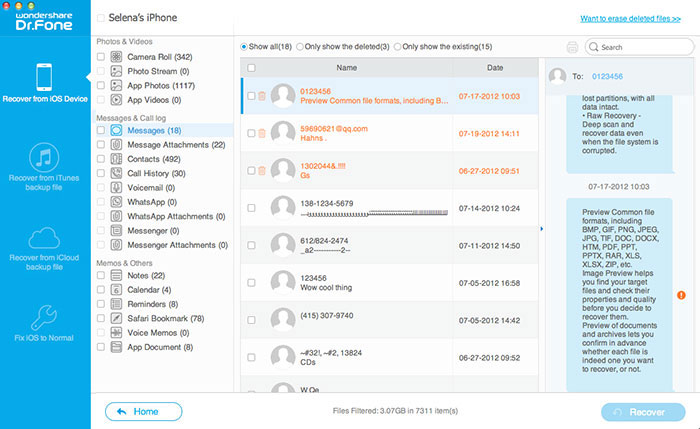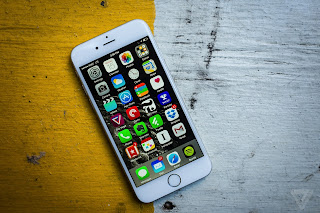If Apple sticks to its traditions, we can expect the iPhone 7 to arrive in mid-September 2016.
The iPhone 6s and iPhone 6s Plus were unveiled on 9 September 2015 (and released to the public on 25 September), iPhone 6 and iPhone 6 Plus were unveiled on 9 September 2014 (released on 19 September); the iPhone 5c and iPhone 5s were unveiled on 10 September 2013; the iPhone 5 was unveiled on 12 September. There's a pattern there that the eagle-eyed reader may be able to spot.
Related Articles:
How to Transfer Data from Samsung to iPhone
How to Transfer Everything from iPhone to iPhone 6s
Our money is on the 6th, 7th, 13th or 14th of September 2016, since it's usually a Tuesday or a Wednesday. Clear your diary.
iPhone 7 launch date rumours: iPhone 7 could be released as early as next summer
AppleInsider is quoting a "reliable source" who predicts that 2016's iPhone 7 will launch several months ahead of the usual yearly upgrade cycle, appearing in the summer of 2016 instead of in September.
The site states that this particular source "has, in the past, provided accurate information about Apple's future product plans", but while this may be true, it must be pointed out that plenty of other sources have made this exact prediction about previous iPhone launches and they've always been wrong. It's just one of those things that gets repeated every year because it's such an appealing rumour.
Apple has significantly shifted its iPhone launch cycle only once: the first four iPhones all launched in summer, then Apple pushed the iPhone 4s back to the autumn, and then every iPhone since then has stuck to that launch cycle. (The iPhone 4s came along in October, admittedly, rather than the September launch date that Apple has followed ever since the iPhone 5.)

If Apple changed the cycle once, it can certainly change it again. But it won't do so lightly: an unexpectedly early upgrade is always infuriating for those who've just bought the previous generation model, and it creates the suspicion that the company might pull a similar trick the following year, leading to a customer base that is more cautious about upgrading. What's more, Apple's natural cycle of announcements sees iOS and OS X upgrades announced at WWDC in June, leaving enough time for the software to be completed in time for the autumn hardware launches. It seems like a risk for Apple to announce everything in the summer and leave its customers hungry for new releases for the rest of the year.
And the reasoning for why Apple would push forward the iPhone 7 launch date is thin.
"This year's iPhone 6s upgrade features largely the same external design as the iPhone 6," argues AppleInsider. "That has prompted concerns among investors that demand for the iPhone 6s could wane, particularly toward the tail end of the product cycle… Launching the iPhone 7 in an earlier window of 2016 would be one way for Apple to address those concerns."
The thing is, every S-class iPhone upgrade has been accused of offering only minor upgrades on the previous generation, yet they all still sell well. And if anything the iPhone 6s and 6s Plus represent more significant upgrades than the iPhone 4s and iPhone 5s did: Live Photos is fun, 3D Touch has the potential to alter the way we think about smartphone interfaces, and the processor and cameras are much improved. Even Touch ID is noticeably quicker.
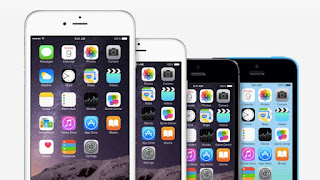
So while this isn't out of the question, we can't see that any convincing reason has been given why Apple should shift its update schedule next year. (Mind you, as Boy Genius Report points out, this rumour might be a mixup based on Apple's imminent release of a new 4-inch iPhone, which wouldn't replace the iPhone 6s or 6s Plus and therefore wouldn't be such a disruptive launch if it came in the summer. Read our iPhone 6c rumours for more on that, or read the next section for the theory that Apple will split its iPhone launches into two yearly events.)
iPhone 7 launch date rumours: Two iPhones a year
So much for the likely launch date. But it's possible - and has been widely speculated - that Apple will begin releasing new iPhones twice a year, to help it keep up with the ever growing and ever improving competition. This would mean an iPhone launch event in the spring of 2015 followed by another in the autumn.
In this case we would expect less dramatic enhancements in each update: perhaps the full iPhone 7 in autumn, followed by an 'S'-class update in the spring. Or Apple might choose to update its 4-inch smartphones in one set of announcements and its larger phones in the other.
It's an interesting theory, but if we were betting men and women Macworld would put its money on September iPhone launches for some time to come.
iPhone 7 launch date rumours: Stop selling iPhones in UK, says Wikipedia's Jimmy Wales
Mark this one as 'unlikely', but if Wikipedia founder Jimmy Wales gets his way, Apple won't sell the iPhone 7 in the UK at all.
No, it's not going to happen. And it isn't really fair to call this a serious proposal: rather, Wales (who lives in London) was using the idea to express his dismay at draft legislation which would require technology companies to give users' communications data to the government when requested. We don't think he's being completely sincere, anyway.
"I would like to see Apple refuse to sell iPhone in UK if gov't bans end-to-end encryption," he wrote on Twitter. "Does Parliament dare be that stupid?"
Jimmy Wales tweet
Apple, of course, has made a number of statements recently in support of privacy rights - a stance which coincidentally helps to highlight certain aspects of rival Google's data-collection practices. But writing off one of the world's biggest iPhone markets? We imagine Tim Cook isn't that keen on privacy.
Read More:
Transfer Contacts,SMS between Samsung and iPhone 6s
How to Backup and Restore your iPhone Data










